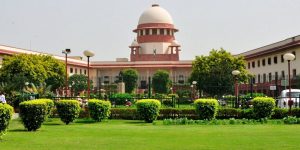THE CONTEXT: The Supreme Court in Gautam Navlakha Vs. NIA observed that in appropriate cases, courts can order house arrest under Section 167 of Code of Criminal Procedure.
Analysis:
WHAT IS THE JUDGMENT?
- The court in its judgment considered, whether there be an order for custody other than police custody and judicial custody under Section 167 CrPC
- In other words, the question considered was whether house arrest custody within the embrace of Section 167 of CrPC
- Section 167 of CrPC deals with custody or detention of the accused authorised by Judicial Magistrate
- Custody under Section 167 has been understood hitherto as police custody and judicial custody, with judicial custody being conflated to jail custody
- The SC in the instant case ordered that courts can authorise house custody under Section 167 of CrPC in appropriate cases
- The SC listed few indicative criteria like age, health condition and the antecedents of the accused, the nature of the crime, the need for other forms of custody etc. for ordering house arrest

SIGNIFICANCE OF THE JUDGMENT
- There is a tremendous amount of overcrowding in jails in India.
- Secondly, a very large sum (Rs. 6818.1 crore) was the budget on prisons.
- In the context of pandemic it will help decongest prisons
- Citizens’ liberty must be kept on higher pedestal and should not be infringed unless for compelling reasons. House arrest will minimise infringement upon liberty
- Many a time arrests and custody are resorted to by the police for extraneous reasons
- Many a time, aged, disabled and people with extreme ill health are send to custody where they face serious human rights violations
- The Judicial magistracy has been accused of sanctioning custody without application of mind.
- The mechanical remand order by magistrates have led to violation of rights of innocent people. By citing this judgment of the SC, the accused can request for house arrest if they satisfy the conditions.
- The unfortunate demise of Father Stan Swamy, an octogenarian under trial in Bhima Koregaon case has once again reignited the need for house arrest especially when the accused are very aged and suffers from multiple ailments.
ABOUT NIA
- It was established under the National Investigation Agency Act 2008 under the Ministry of Home Affairs Headquartered in New Delhi
- It is a central agency to investigate and prosecute offences which affect the sovereignty, security and integrity of India.
- It acts as the Central Counter-Terrorism Law Enforcement Agency.
- It is empowered to deal with terror-related crimes across states without special permission from the states.
- A State Government may request the Central Government to hand over the investigation of a case to the NIA, provided the case has been registered for the offences as contained in the schedule to the NIA Act.
- The Central Government can also order NIA to take over the investigation of any scheduled offence anywhere in India
- An amendment to NIA act in 2019 added additional offences for investigation under the NIA like human trafficking etc.
- The State of Chhattisgarh has filed a petition in the SC challenging the constitutional validity of the NIA Act.




